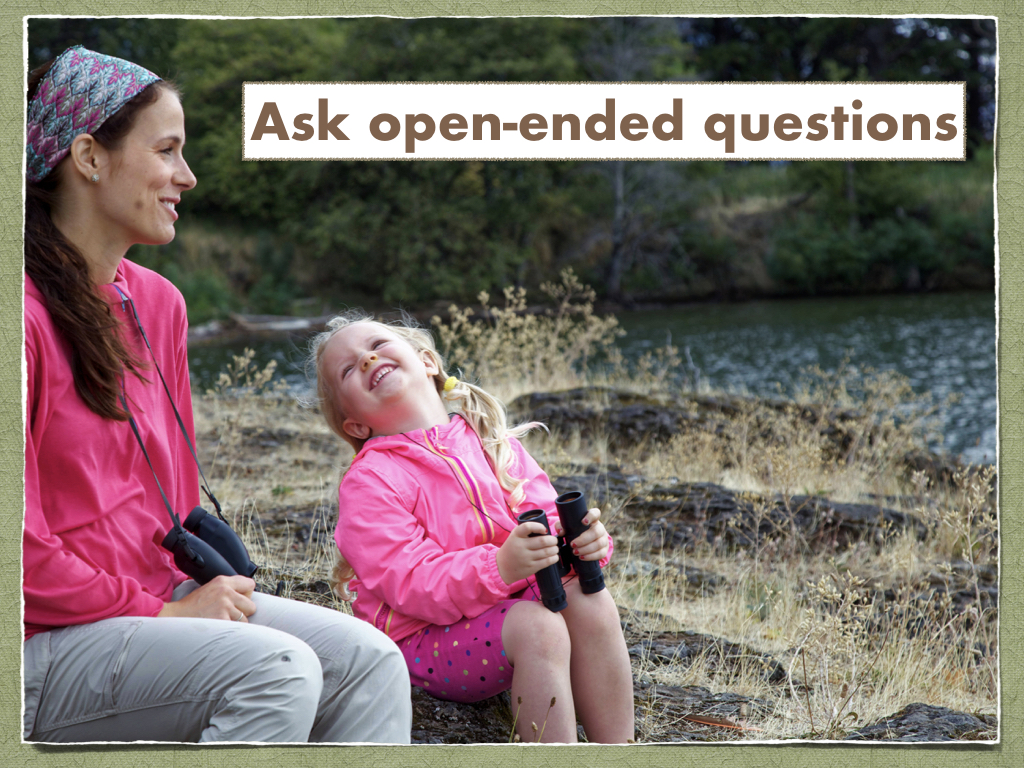The best way to develop a child’s language is by interacting with her. This is true for all languages, including a bilingual child’s minority language. In other words, talking with children—even if conversations are about seemingly unimportant things— is the best way to promote their language skills.
One thing I consciously try to do when interacting with my daughter (when reading a book, having a meal together or riding in the car) is to ask ‘open-ended questions’. That means I’m trying to ask questions that require her to say more than just ‘yes’ or ‘no’ in response. This way, she needs to actively use her minority language.
Closed-ended vs. open-ended questions
A question like Is the elephant drinking the water? is a closed-ended question that elicits a one word answer. This type of question does not require children to speak much. But you can rephrase that same question a little: “What is the elephant doing?” or “Tell me what the elephant is doing.” Such open-ended questions encourage children to use their language to describe what is happening, give their own interpretation, and share their views and feelings.
Other common ways to phrase questions to elicit more speech:
-
-
-
-
- Tell me why/how/what…
- Why do you think…
- Why did you…
- How did…
- What might happen if…
-
-
-
Patience and paraphrasing
You may need to be a bit more patient and wait for your child to respond because these types of questions also require children to think. They are encouraged to be more creative and use their reasoning when responding. Coming back to the idea of having a conversation: When you respond to your child, you can repeat and/or paraphrase what your child said, using different words in order to naturally broaden their vocabulary in the minority language.
In sum, asking open-ended questions gives children more opportunity to express themselves, while it gives you as a parent the opportunity to see what your child can already do with a given language.

